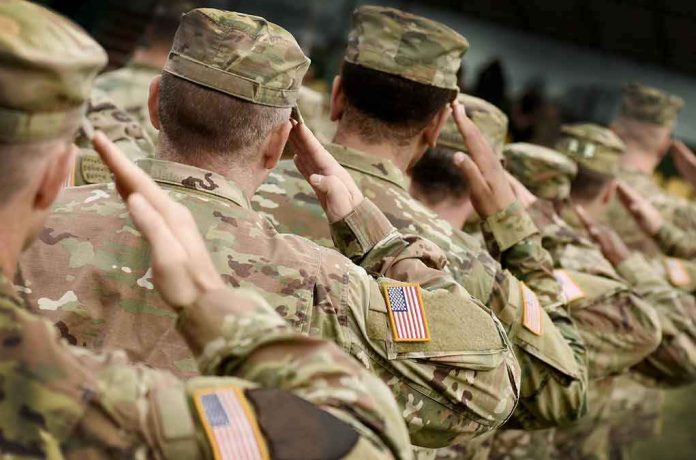
National Guard troops tasked with picking up trash in the nation’s capital highlight a federal intervention that blurs the line between military service and municipal maintenance, raising new questions about government overreach and the erosion of local authority.
Story Snapshot
- National Guard troops in Washington, D.C. are now performing beautification tasks, including trash removal and landscaping, as part of a federal “D.C. Takeover” initiative.
- This deployment follows a White House executive order citing a crime emergency, despite local officials reporting declining crime rates.
- The operation places the D.C. National Guard under direct presidential control, bypassing local government and setting a precedent for expanded federal intervention.
- The move has sparked debate about the appropriateness, symbolism, and long-term implications of using military personnel for city maintenance.
National Guard’s New Role: From Security to Street Sweeping
In August 2025, the federal government declared a crime emergency in Washington, D.C., authorizing a sweeping National Guard deployment that quickly became the subject of national attention. While the Guard has historically been called into D.C. during moments of unrest or major emergencies, this time, hundreds of troops were observed carrying out custodial duties—picking up trash in Lafayette Park, the National Mall, and the Tidal Basin. The operation, coordinated by the National Park Service and Joint Task Force-DC, is part of the White House’s “beautification and restoration mission,” a program that has assigned at least 110 soldiers to visible cleanup efforts throughout the city.
The federal takeover, named the “Safe and Beautiful Task Force,” has drawn sharp reactions from local residents and political observers. Many see the optics of armed service members wielding trash bags—rather than providing traditional security or emergency response—as an unprecedented use of military resources. The White House maintains that these efforts are essential to restoring “law, order, and public safety,” yet city officials and tourism leaders have launched their own campaigns, such as “We the People DC,” to counteract what they describe as negative rhetoric and to reassure tourists that D.C. remains safe and welcoming.
Federal Authority Versus Local Autonomy
The District of Columbia’s unique status means its National Guard answers directly to the president, not to a local governor, giving the White House exceptional latitude to intervene in city affairs. President Trump’s executive order bypassed city officials, escalating tensions between federal and local authorities. While the stated justification was an alleged spike in crime, D.C. leaders have pointed to official data showing declines, suggesting that the emergency declaration may be driven more by political narrative than urgent necessity. This tension has intensified debates about the proper role of the military in civilian life and the risk of undermining local governance in the name of federal priorities.
Such direct federal intervention raises constitutional concerns for many conservatives, who value limited government and local control. The decision to redirect National Guard forces toward civic maintenance tasks, rather than strictly security, sets a new precedent for non-traditional military involvement. Legal experts caution that normalizing military participation in routine city functions could erode the clear boundaries that have historically protected both local autonomy and the proper scope of federal power.
Public Reaction and Broader Implications
The deployment has divided public opinion in the capital and beyond. Some residents and business owners welcome the immediate improvements in cleanliness and order, hoping for a boost in tourism and city image. Others see the operation as political theater, questioning the appropriateness, cost, and symbolism of using service members for tasks typically reserved for municipal workers. Experts warn that the long-term implications extend beyond D.C., potentially encouraging similar federal interventions in other cities under the pretext of emergencies—raising the specter of expanded government reach and blurred lines between civilian and military roles.
National Guard troops in DC turn to custodial work, landscaping to make capital ‘beautiful again’ https://t.co/wh4afflMOl pic.twitter.com/MggG9cg4jM
— New York Post (@nypost) August 27, 2025
For conservatives concerned about government overreach, the D.C. deployment is a double-edged sword. While it showcases a decisive federal response to urban decline, it also exposes the risks of normalizing extraordinary executive authority and military involvement in daily civic life. The real test will be whether these interventions genuinely address underlying problems or serve as costly, symbolic gestures that chip away at constitutional principles and local self-rule.
Sources:
National Guard members activated for DC federal takeover seen picking up trash
DC launches ‘We the People’ campaign while National Guard patrols streets, picks up trash





